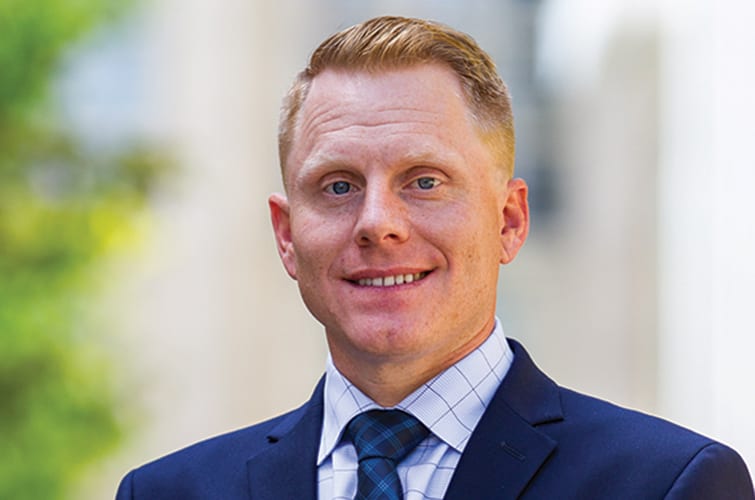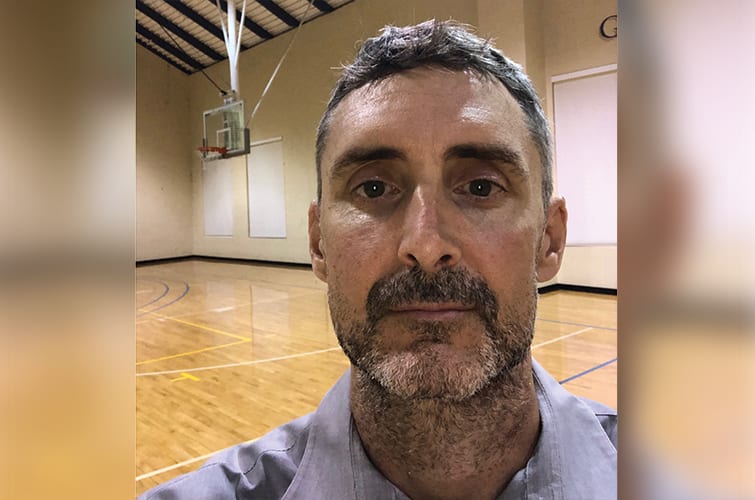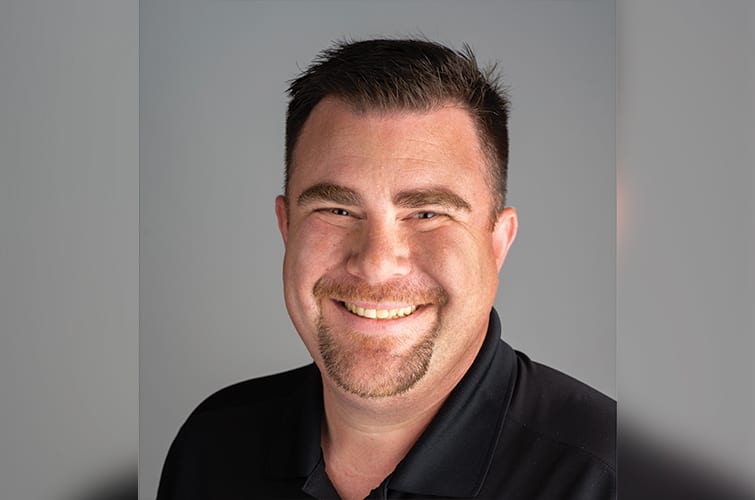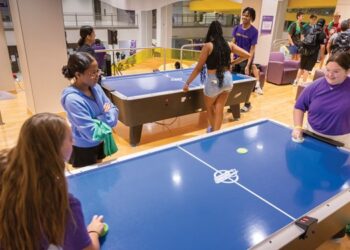Cautious is the word Marc Falkenstein used to describe his budgeting mindset prior to COVID.
“I have always been very engaged, cautious and involved in budget planning, processing and assessment,” said Falkenstein, the executive director of Campus Life and UC Services at the University of the Pacific.
He’s been conducting monthly budget reviews throughout his career. That became helpful when COVID-19 hit in the spring of 2020.
A Few Revenue Changes
One of the first changes to his department’s budget was minor: funding for supplies that would be needed upon reopening and planning to keep them in stock. However, as the fall semester rolled around, Falkenstein said it was announced the university would not be collecting fees from students. In addition to having fees cut, the institution eliminated the department’s opportunities for revenue generation based on state guidelines.
The student fee is a large part of many budgets in the industry. Purdue University is no different. Mike Warren, the director of Recreation and Wellness, said COVID-19 put the very foundation of their budget — which is student fees — at risk.
As such, Warren said they made the decision to serve students through virtual programs in the spring versus issue refunds. In the summer, they offered free membership for those who had been enrolled in the spring. But, the biggest challenges still lie ahead.

Warren shared they had 4,600 students in the fall of 2020 move to online instruction. And Purdue’s RecWell program does not collect the $117 semester fee when students go virtual. “We instantly lost $500,000 from our budget in one semester alone,” he shared. “If we have a similar spring, that is a $1 million revenue shortfall in one of our two main revenue streams.”
Their other main revenue stream, membership, is also down due to several things:
- Capacity restraints.
- Faculty and staff working remotely.
- Community members unable to access the facility due to COVID testing requirements.
“Many programs will not be able to sustain these revenue losses for multiple years,” said Warren. “We as campus recreation professionals have to find ways to increase revenue to sustain our normal operations and adapt.”
Meeting Budget Cuts Creatively
To try and meet the quickly dwindling resources, Purdue didn’t backfill open positions, didn’t replace equipment in good condition that may fall out of warranty periods, reduced facility hours and optimized student staffing where possible.
But making cuts isn’t the only way recreation has managed a dwindling budget. While Falkenstein said they reduced operating hours, identified ways professional staff can assist with building operations and postponed projects scheduled for 2020, they also made one big reallocation. The department has historically paid for its leased cardio equipment from the fee and revenue generated budget of the department. This year, Falkenstein worked with the division’s budget manager and the University Budget Office to reallocate that payment to the University Allocated Operating Budget.
Nathan Arrowsmith, the director of Recreational Sports at Rollins College, said he’s had the mindset of spending half of his normal budget during 2020. As such, he had to come up with creative ways to still serve students. For starters, the college utilized its lake more with paddleboards, canoes, etc.

Rollins also had fewer sport options, gearing toward offerings that required less equipment or referees. For example, they did kickball instead of flag football. He also suggested other rec professionals look into open gym because with no officials, cost is lower.
Warren had the same mentality of managing the budget through programming impacts. “When our sports staff presented what outdoor sports to offer, expense and revenue were a major consideration for the first time,” he said. “The difference between un-officiated ultimate frisbee versus nine-on-nine soccer was drastic financially.”
They instead looked into offerings like three-on-three un-officiated soccer to help Recreation and Wellness finish in the black. At the climbing wall, Warren said they charged equipment rental memberships for students.
New Revenue Streams
On top of changes, new revenue streams emerged, like Purdue’s virtual escape room. In fact, that is where Warren said the industry needs to focus.
“New revenue streams will be critical to our future,” he said. “Development and fundraising will be more of a priority for us. We have to connect with our alumni base to support the experience our students need.”
While not necessarily new revenue streams, Falkenstein has worked with various departments — from the Student Activities Center to Religious and Spiritual Life — to support programming and engagement for students. “Working with these other departments has allowed all of our programs to have a bigger impact on our campus as we’ve spread out the fiscal impact on each of our respective budgets,” he said.

Bringing Staff in on Budget Cuts
Beyond the ideas themselves, one of the most important pieces for Warren in making new budget cuts work is getting the team onboard. “I took an education perspective here at Purdue where every professional staff member will be part of the solution,” he said. “We face this as a team. I know many directors will want to shield this from their staff, but I lead through transparency. As tough as this is on everyone, we will learn and grow from this.”
He talks with his staff about revenue shortfalls and gets buy-in while working toward a solution. Monthly, they review numbers as a team and have completed various budget exercises. It’s through this that Warren hopes they find creative solutions to get Purdue through the next few years.
Because the truth is, a year from the initial start of the pandemic the industry is still feeling its impact. Warren said things that were once guaranteed — like student fees — are no longer. And with no end in sight, it’s time to let go of what was.
“My encouragement to other leaders is to use these tough times in uncharted waters as a development opportunity for staff,” he said. “We find strength in our team, and we will find a way through the COVID-19 storm to the new campus recreation and wellness frontier post global pandemic.”










